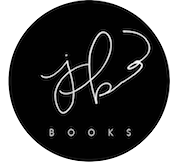This is post #13 in a fifteen post series, entitled “15 Days to Writerly Awesome in 2015,” posting on Sunday, Monday, Wednesday and Friday of January.
Below is a guest post by my friend, Drew Hayes, writer of the Super Powereds:
Writing about writing is difficult to do, or at least to do without devolving into a circle jerk of quotes and tropes. I don’t know that I’ve ever actually read something that taught me how to be a better writer, aside from the foundations of grammar I learned early in life and then proceeded to fuck up consistently from that point on. Learning to write is done by reading, sure, but by reading things you love that draw you in, and seeing techniques that you incorporate into your own repertoire. I doubt I could give any advice about improving one’s writing that would be worth listening to, so I’m not going to try.
What I do think I can help with, even if only a little, is the process for deciding what to write. Let’s be honest here: most authors have 3 – 300 ideas floating around in our skulls at any given moment, jockeying for attention and causing us to daydream during the boring bits of meetings. How does one decide what the next project is going to be? Do you go with one that fits the expected mold of what you’ve previously produced, or try and play into an under-served market to expand your readership? Picking one idea to pursue is a tough decision to make, but I have a quote I like to keep in mind whenever I’m choosing projects:
“Be fearful when others are greedy and greedy when others are fearful.” – Warren Buffet.
Some of you will undoubtedly recognize that as having nothing to do with writing, and in fact being (excellent) advice about the stock market. Nonetheless, I find it holds true in the world of writing just as much as the world of business. Often times there will be genres that go through the cycle of becoming hot, then explode all over the literary world until a point of such over saturation is reached that no one wants to touch the property for fear of being lumped with hundreds of other similar works. A wonderful example: Vampires over the last five years, or zombies before that.
For many writers, going into a genre at the point of over saturation is a death sentence, but as someone who occasionally writes satire, for me that’s actually a sweet spot. Good satire and comedy revolve around poking fun at the expectations people have built in their heads, and the more wide-spread that knowledge is the more a satirist can trust their readers to have those pre-existing notions. By the same token, I try to avoid any properties that are “huge” or a “sure thing” because I know the tipping point for them is inevitable, and I don’t want to be on the wrong side of that crush when they strike. Like most of life, it’s all in the timing.
This is not me trying to coax you all into doing satire or anything of the like. I merely use myself as an example because it’s the topic I know best. My point is that when making selections for your next project, take a good look at the landscape set before you; not just a few feet in front but for miles in every direction. See not only where it is, but it might end up, then try to get ahead of it rather than following. Going with the crowd is one of the best ways to make sure you never stand out.
Of course, all of this presumes you don’t have an idea burning a hole in your mind, in which case we all know you’ll have to write that, landscape be damned. If such is the case then just buckle in and enjoy the ride.






